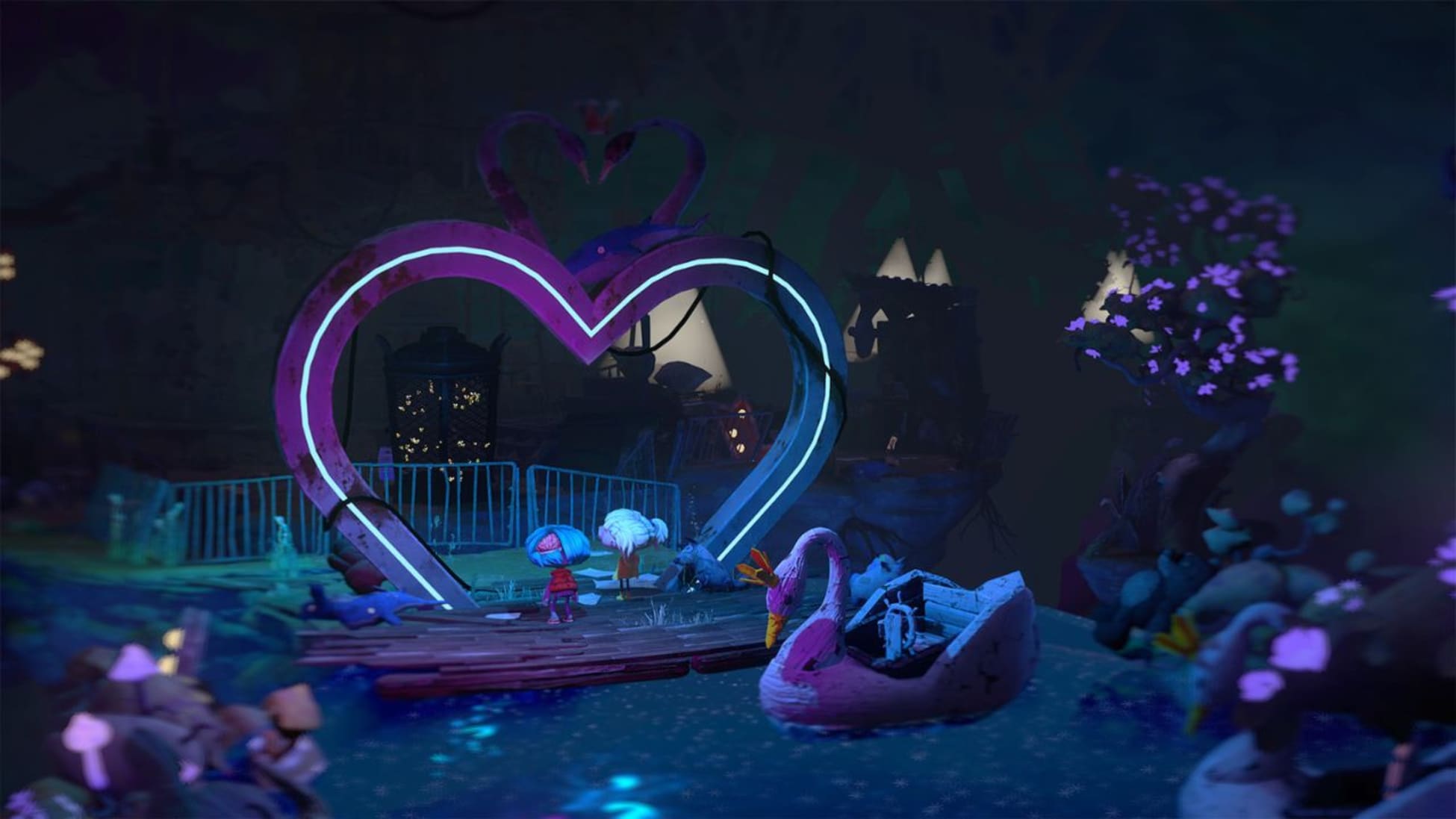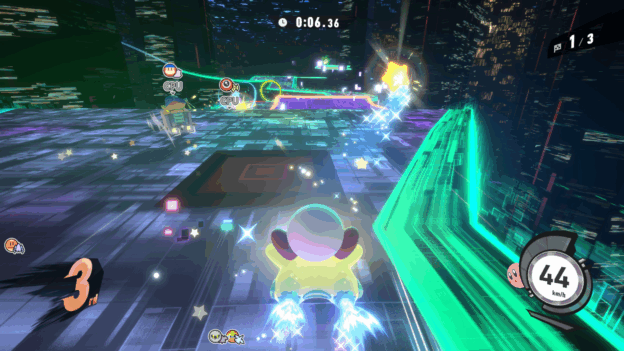Not Tonight 2 Review – Review

Over the past several years there’s been an emergence of work simulators that have found varying levels of success. Examples include the rural-focused farm simulators, monotonous meditative experiences like Power Wash Simulator, creative clutter clean-up & home renovators in the vein of House Flipper, gory & gross multiplayer mopping in Viscera Cleanup Detail, and fantastic fictional sci-fi experiences like Hardspace: Shipbreaker. These slow moving, mundane tasks somehow translate to a calming, satisfying loop of finishing the objectives and the accomplishment of a job well done. One massive gap in the experience is storytelling. Of those games I’ve played, storytelling (if there is any) is experienced through intercom messages or subtext which can make it feel somewhat hollow. The first Not Tonight by developer Panic Barn fell into this same hole, but with their follow-up, a more concerted effort was made to expand the experience beyond being a self-insert into a more clearly defined cast of characters and a developed narrative to place them in.

Not Tonight’s core gameplay revolves around being a bouncer for various establishments. The player manages a queue of people lining up to get into the hot spot, filtering people based on checking their IDs and making sure they are of age to enter, ensuring their profile matches their ID, checking the expiration date, validating the right markings are on the license, and only letting those in who check all the boxes. Each job has a minimum targeted goal of patrons to let in, as well as bonus rewards for two additional higher head counts achieved. If you don’t check the IDs well enough and let someone in who shouldn’t be there, the establishment owner will berate you over walkie-talkie, eventually docking your pay or closing early if too many are let through. Doing these jobs give you cash on-hand, but at the sacrifice of health. If you lose enough health, it’s game over. Depending on what landmark you’re working in, additional requirements can also be included. In one early stage, a city was split off into a war between LARPer knights and wizards, and your job as bouncer was not only to keep wizards from entering the front door but also shooting out of the sky those trying to sneak in via air balloons. In another you’re required to draw a card with each guest and pick whether theirs is higher or lower. The game continues to throw new ideas out between stages that keep them fresh, and the creativity shines through.
A great addition to that basic template is overworld exploration. In Not Tonight you were pinned down into a gulag as a voiceless prisoner. Here, you’re doing cross-country trips, and the game in turn added an almost Oregon Trail-type experience. Between different landmarks you’ll travel cross country, with intermittent landmarks in-between. In those spaces the game writes a scene for where you are and sometimes side characters to interact with. One of the first pit stops your character parks at a diner to use their toilet, but has to be a paying customer in order to use it. The dingy diner has a gruff, mean-looking cook who offers you soup. Do you take the soup or get out of Dodge? Small choices like that can be the difference between survival and game over. An additional morale meter can be affected by what happens in these conversations as well, and like the life meter, if this hits zero, you’ll be re-loading your last save. While not an expansive dialogue tree, these conversation interludes add stakes to every move you make and makes choosing your words carefully all the more important.

Not Tonight 2’s story revolves around a group of friends in Seattle who are protesting the Martyr force, a brutal authoritarian government that has seceded and annexed a healthy portion of the United States and is led by a no-mercy strongman. In the thick of things, Martyr immigration forces abduct your friend and cart him all the way to Orlando, Florida where a detention center processes who they perceive as criminals. A group of three friends are then forced to split and start a journey across what was the United States to obtain proper identification (as well as a certified family tree?) and meet at the detention center to free their buddy. This nation has split into the Martyr territories, an allied force who leans towards more democratic values, and a portion of the northern territories that have been annexed by Canada. Those friends are forced to contend with these rival factions while completing jobs via a contract service called BouncR along different landmark cities to finance their cross-country trip. Along the way are varying personalities, old and new, that add flavor and context to what’s happening in the regions they reside in. They’ll ask you to let them in with invalid ID or credentials that don’t match the game requirements, which will often result in beneficial outcomes like extra money, leads on where to go next, or resource items that make future levels easier. I was especially delighted when one eccentric pub owner from the first game found his way into the northwestern states: a real charmer who, since the events of the last game, is much worse for wear and more than a little off kilter.
Those are the bigger story points, but it’s within the character conversations where the narrative is fleshed out. Each of your friends have distinctive personalities that are reflected in their dialogue. Of the playable characters, one is a sort of everyman who’s even keeled, another is a laid-back guy who wants to avoid confrontation, and the third is a strong-willed, no BS personality. They inform each other’s choices and feel distinct enough to make each playthrough a new experience. The story arc has the subtlety of a hammer but is lean enough where it felt appropriate to define everything in no uncertain terms, and despite this, the plot weaves in lots of twists, turns, and exposing of puppet masters pulling strings of manipulation around them. I want a story like this to have larger than life characters, dramatic turns of events, and broad themes to distinguish the different factions at play, and that’s what Not Tonight 2 provides.
As an American, for me, the lack of subtlety makes sense, and is a carryover from the Brexit-focused first entry in the series. Whereas the first game featured a self-insert character in a world removed from my understanding, the sequel is a character focused self-reflection of what it is to be a citizen of a crumbling nation at war with itself. We don’t live in subtle times, and every argument feels existential. Extremism is engrained in so many of our day-to-day interactions with people, removing the opportunity to find unity. At times, it can feel like we’re living in a cold civil war – small extremist groups injecting terror in people’s lives based on a skewed view of where we’ve been and ratcheted-up fears of where we’re headed. Panic Barn uses this backdrop to paint a grim potential reality if projected out. While Not Tonight 2 is recently released on Switch, original development of the game started all the way back in 2020, and subjects of racial inequality, gestapo-like abductions, other-isms, strong views on fictional pandemics & mask wearing, and the rationalization for violence and oppression on our fellow citizens. There’s an uncomfortable prescience in themes that should give pause to players, regardless of the side of the fence you lean towards.
Not Tonight was a perspective of the knock-on effects of Brexit in the U.K.; Not Tonight 2 is a dim view of where the U.S. is headed from the outside in. If Not Tonight’s story was like a protest song, then Not Tonight 2 is a cry for help on our behalf. Panic Barn wears their beliefs on their sleeve, and that perspective informs the story in a way that makes it impossible to divorce their worldview from how they’ve envisioned our lives. With that caveat, if you give it a chance, Not Tonight 2 is an expansion of the original into a much more multilayered game with depth that makes for a more fulfilling experience. Coupling that with a tried-and-true queue management core and a cross country road trip makes for a game that is a big step above its predecessor.




